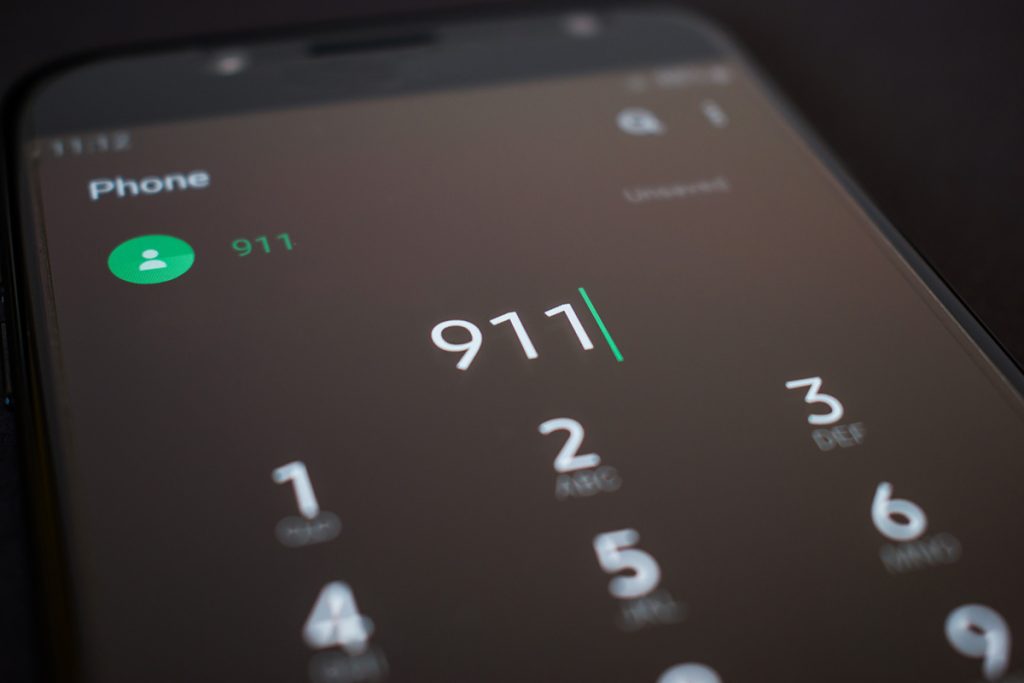

Yes, 911 calls are public records. However, state law determines what the information Public Safety Answering Point (PSAP) may share with the public. Consequently, if you want to see the name, number, address, or personal information of the person who made a 911 call, you may need a court order.
Scroll down to view the accessibility of 911 call records in your state (Table).
Table Of Contents“Public record” refers to documents or media recorded or filed by a public agency. To access public records, what you must do is:

Yes, but access to public records depends on state law. For example, under Alabama code section 11-98-12. You will need a court order to access 911 call records in the state. The statute reads in part, quote:
“After April 21, 2010, an emergency communications district may not release the audio recording of a 911 telephone call except pursuant to a court order finding that the right of the public to the release of the recording outweighs the privacy interests of the individual who made the 911 call or any person involved in the facts or circumstances relating to the 911 call. This section shall not apply to law enforcement personnel conducting an investigation where the 911 telephone call is or may be relevant to the investigation.”
However, section B of the statute allows PSAP centers to release 911 records to a legal representative of the person who made the call or the caller’s estate on the condition that the caller is deceased/incapacitated and the person making the request submits an affidavit.
Under section 11-98-12 (c), written and electronic records that detail circumstances or events related to a 911 call are subject to public inspection, but you must pay a fee to gain access.
In states including Colorado, Connecticut, the District of Columbia, and Massachusetts, there are no statutes that specifically address 911 calls. Because of that, you may file public records request at your state’s 911 department or check state laws.
Some police districts may be more compliant than others. 911 call records should be disclosable under the public records act.
Note: Alaskan lawmakers have proposed a bill that would remove 911 call records from the Public Records Act. However, it failed to pass.
911 call records are available to the public in Arizona, unless there is an intervention made by the government to suppress the tapes. 911 call records can be withheld for many reasons such as public safety or even the privacy of a child.
911 call recordings in Arkansas can be released with a Freedom of Information Act Request. However, in the interest of confidentiality information such as subscriber telephone number, address, and names of 911 callers are deemed to be private and not subject to the FOIA.
Ark. Code Ann. § 12-10-317(a)(2) (2018)
In California 911 call records are not exempt from the new CPRA (2020). This means that 911 call records are available for public inspection and copying in California. However, there is an argument that under 6254 (f) call records related to an investigation my be made unavailable:
(f) Records of complaints to, or investigations conducted by, or records of intelligence information or security procedures of, the office of the Attorney General and the Department of Justice, the Office of Emergency Services and any state or local police agency, or any investigatory or security files compiled by any other state or local police agency, or any investigatory or security files compiled by any other state or local agency for correctional, law enforcement, or licensing purposes. However, state and local law enforcement agencies shall disclose the names and addresses of persons involved in, or witnesses other than confidential informants to, the incident, the description of any property involved, the date, time, and location of the incident, all diagrams, statements of the parties involved in the incident, the statements of all witnesses, other than confidential informants, to the victims of an incident, or an authorized representative thereof, an insurance carrier against which a claim has been or might be made, and any person suffering bodily injury or property damage or loss, as the result of the incident caused by arson, burglary, fire, explosion, larceny, robbery, carjacking, vandalism, vehicle theft, or a crime as defined by subdivision (b) of Section 13951, unless the disclosure would endanger the safety of a witness or other person involved in the investigation, or unless disclosure would endanger the successful completion of the investigation or a related investigation. However, this subdivision does not require the disclosure of that portion of those investigative files that reflects the analysis or conclusions of the investigating officer.
California Inspection of Public Records 6254 (f)
In this case, the tape itself does not have to be disclosed under this exemption, only the information that is on the tape. This exemption only applies to 911 calls that are related to active investigations and the California Supreme Court has stated that it should not be used to “…shield everything law enforcement officers do from disclosure. Often, officers make inquiries of citizens for purposes related to crime prevention and public safety that are unrelated to either civil or criminal investigations. The records of investigation exempted under section 6254(f) encompass only those investigations undertaken for the purpose of determining whether a violation of law may occur or has occurred. If a violation or potential violation is detected, the exemption also extends to records of investigations conducted for the purpose of uncovering information surrounding the commission of the violation and its agency.”
Yes, 911 calls in Colorado are available under the Colorado Open Records Act.
Neither the statute or case law specifically mentions 911 calls. However, they will not be public record if they are part of an ongoing investigation as they would be ‘in connection with the detection or investigation of a crime’:
(3) Records of law enforcement agencies not otherwise available to the public which records were compiled in connection with the detection or investigation of crime, if the disclosure of such records would not be in the public interest because it would result in the disclosure of (A) the identity of informants not otherwise known or the identity of witnesses not otherwise known whose safety would be endangered or who would be subject to threat or intimidation if their identity was made known, (B) the identity of minor witnesses, (C) signed statements of witnesses, (D) information to be used in a prospective law enforcement action if prejudicial to such action, (E) investigatory techniques not otherwise known to the general public, (F) arrest records of a juvenile, which shall also include any investigatory files, concerning the arrest of such juvenile, compiled for law enforcement purposes, (G) the name and address of the victim of a sexual assault under section 53a-70, 53a-70a, 53a-71, 53a-72a, 53a-72b or 53a-73a, voyeurism under section 53a-189a, injury or risk of injury, or impairing of morals under section 53-21 or family violence, as defined in section 46b-38a, or of an attempt thereof, or (H) uncorroborated allegations subject to destruction pursuant to section 1-216;
Conn. Gen. Stat. § 1-210(b)(3)
The Delaware Freedom of Information Act means that 911 calls are public record. There is no statute or case law that would prevent a 911 call from being viewed in Delaware. There are 3 cases in which an emergency call is exempt from the Delaware Freedom of Information Act
• Under 29 Del. C. § 10002(l)(17)(a)(1), which exempts emergency response procedures or plans if disclosure would reveal vulnerability assessments, specific tactics, specific emergency procedures or specific security procedures;
•If they a are part of a medical file that is exempt under 29 Del. C. § 10002(l)(1) because disclosure would constitute an invasion of personal privacy under 16 Del. C. § 1212(a);
• If they implicate privacy rights arising under constitutional and Delaware common law and are therefore exempt under FOIA by virtue of 29 Del. C. § 10002(l)(6).
According to the National 911 Program, all 911 centers (PSAP) record and save calls. Therefore, if you know where the call originated, you may file a request at a center near the area. If you do not know where the 911 call originated, you may use the NASNA Member contact form.
Identify the specific state agency that holds the record, check the requirements, then submit an oral or written request.
For example, in Massachusetts, you may submit a request by calling the Primary Records Officer via (508)828-2911 or send an online written request to [email protected] .
The first step is to check your state law. State law will tell you what information you are entitled to and what you can and cannot do with it.
For example, in Florida, you may use 911 call records in court if the operator calls back. What do I mean?
Assume that you call 911, and the call drops -prompting the operator to call back. Under the hearsay rule, the call or call back recording may be admissible in court.
To submit a 911 call request, after finding the state agency that holds the records, you must:
Remember, state agencies must adhere to state law. Meaning it is advisable to check state laws before submitting a request.
You may submit a Notice for Information Request to your county’s open record officer or PSAP center.
How to file a Freedom of information request and access federal records/
Under the Freedom of Information Act (FOIA), citizens have the right to access public records. Consequently, if your state does not have a specific statute addressing public records, you may submit a FOIA request to the federal agency that maintains the records you want.
The requirements may vary, but all FOIA request forms must contain:
FOIA act: what to remember